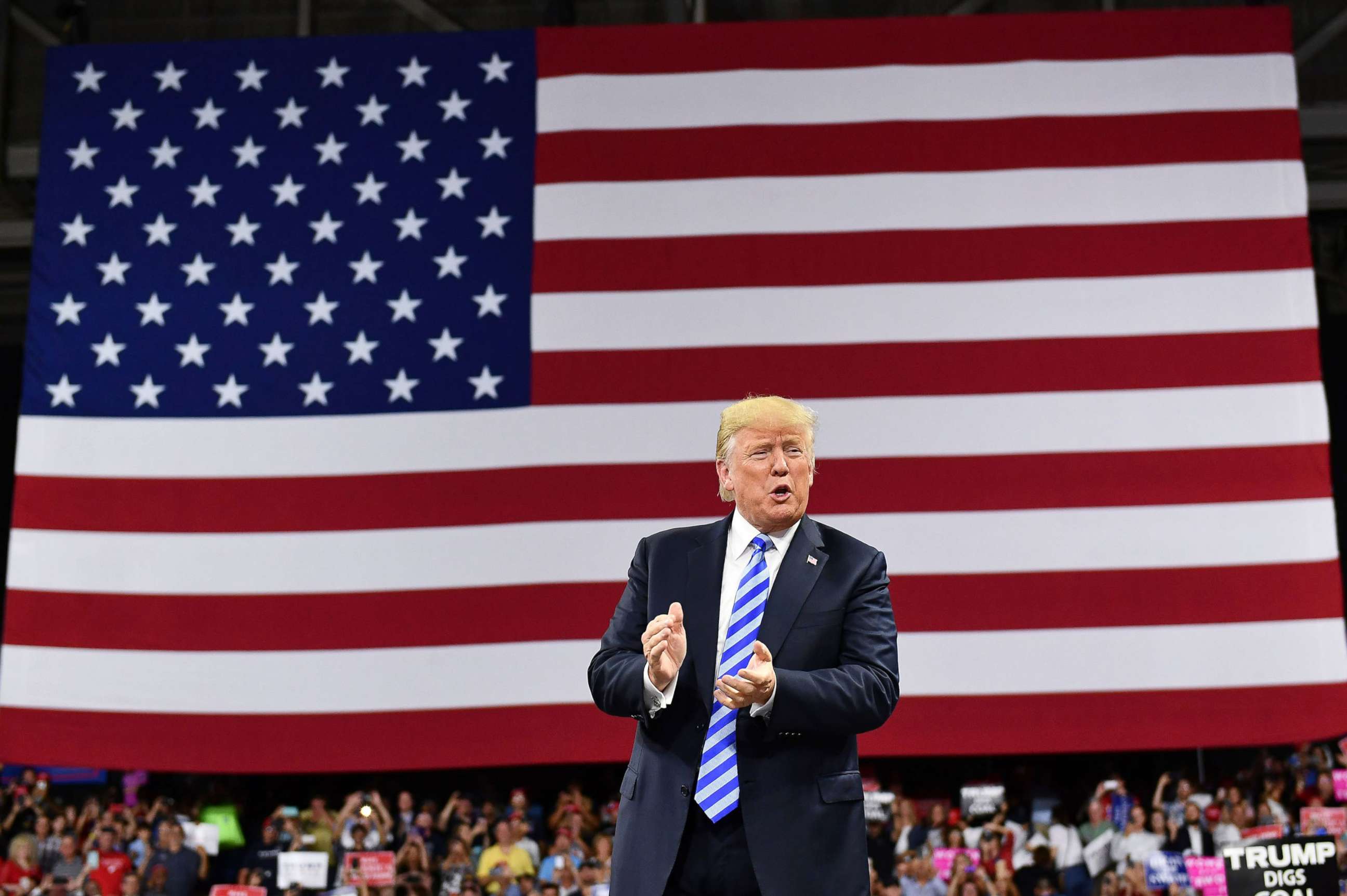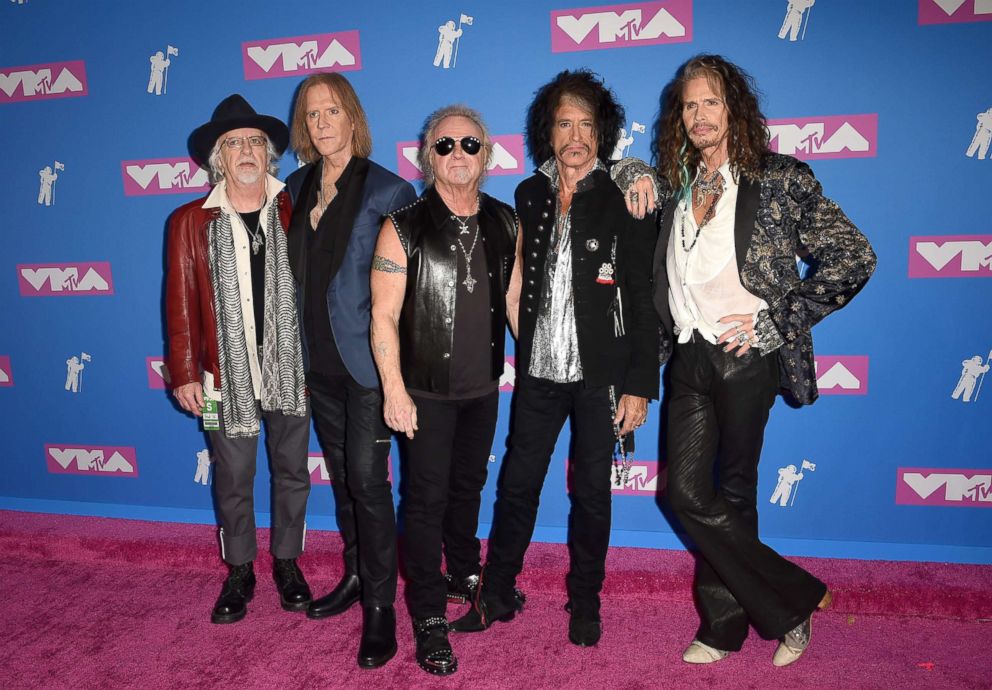Steven Tyler threatens Trump with legal action for playing Aerosmith music at rallies
"I do not let anyone use my songs without my permission," Steven Tyler writes.
Steven Tyler, the frontman of the rock back Aerosmith, sent President Donald Trump a cease and desist letter on Wednesday, demanding that the president stop playing the band's music at his rallies, Tyler's attorney Dina LaPlot confirmed to ABC News.
"Mr. Trump does not have any right to use the name, image, voice or likeness of our client, without his express written permission, in connection with his potential campaign or otherwise under state and federal laws," reads the letter, which was dated one day after Aerosmith's "Livin' on the Edge" was played at Trump's rally in West Virginia.
It is the third letter that Tyler has sent to Trump demanding that he stop playing the band's music at his campaign events. ABC News has reached out to the White House but a request for comment was not immediately returned.
Tyler was asked by TMZ over the weekend if he will give Trump any more chances before taking legal action. "No more," the rock star said.
"Our songs are for causes not campaigns," Tyler told TMZ.
"What makes this violation even more egregious is that Mr. Trump’s use of our client’s music was previously shut down, not once, but two times, during his campaign for presidency in 2015 ... Due to your receipt of the Previous Letters, such conduct is clearly willful, subjecting Mr. Trump to the maximum penalty under the law," the letter warns, citing two previous cease and desist letters Tyler's legal representatives sent to Trump on August 28, 2015 and October 10, 2015 after the Trump campaign persisted to play Aerosmith's "Dream On" during campaign rallies.
Tyler tweeted on Wednesday that his demand that Trump stop playing his music is not partisan but is driven by a concern over "protecting copyright and the rights of songwriters."
“This is not about Democrats vs. Republicans. I do not let anyone use my songs without my permission," Tyler wrote. "My music is for causes not political campaigns or rallies. Protecting copyright and songwriters is what I’ve been fighting for even before this current administration took office."

The letter, a copy of which was obtained by ABC News, also cites the musician's concern that playing Aerosmith music at Trump rallies implies that Tyler endorses Trump's "campaign and/or his presidency."
"By using “Livin’ On The Edge” without our client’s permission, Mr. Trump is falsely implying that our client, once again, endorses his campaign and/or his presidency, as evidenced by actual confusion seen from the reactions of our client’s fans all over social media," the letter says, citing a violation of Section 43 of the Lanham Act and adding that "Mr. Tyler’s voice is easily recognizable and central to his identity, and any use thereof wrongfully misappropriates his rights of publicity."
In his tweets, Tyler also cites his and his bandmate Joe Perry's support for the Music Modernization Act, which was introduced by a bipartisan group of lawmakers on Capitol Hill in April. The legislation would provide artists relief by updating outdated royalty laws and allowing musicians to receive fair market compensation for songs that are played on digital streaming services, such as Spotify.

Tyler's attorney told ABC News that "Steven has been on the forefront of copyright reform with me since 2013. The Music Modernization Act is in amalgamation of many different bills that have had Steven’s support over the years namely the Songwriter Equity Act which was first brought to the floor by Congressman Doug Collins, our good friend," citing the two musicians' involvement with the advocacy group Songwriters of North America (SONA).
In 2015, a defiant Trump got into a public feud with Tyler on Twitter, claiming that by playing "Dream On" at his rallies, the Rock and Roll Hall of Famer "got more publicity on his song request than he’s gotten in ten years."
"Even though I have the legal right to use Steven Tyler’s song, he asked me not to. Have better one to take its place!" Trump wrote at the time.
Since 2015, several other musicians, including The Rolling Stones, R.E.M. frontman Michal Stipe, Canadian rock singer Neil Young and British singer Adele have also objected Trump playing their music as his campaign events.




